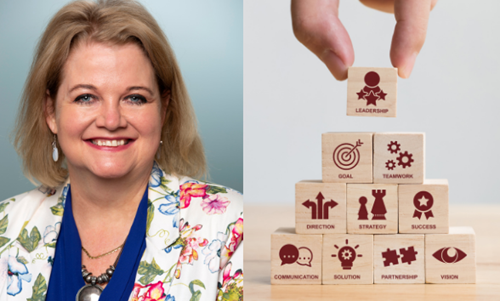7 March 2022

Written by Dr Jane Usher - HOD, Milpark Business School
Everything in an individual’s life rises and falls on personal leadership. You may ask why I say this. Personal leadership is the foundation for all we do in life. Professional goals and success are founded on what the individual does. In turn, our social capital rests on how we behave as an individual, and therefore how authentic and trustworthy we are perceived to be.
Considering this, let’s use this moment as an opportunity to take stock of our lives. Those New Year’s resolutions, if you made any, may have dimmed or faded completely. Life is revving up substantially at this point in time. There are tensions in the world at large. It may feel as if people around you constantly want your attention, and that you are being pulled in too many directions.
To ensure that we keep our dreams and goals in sight, we therefore need to stop and reflect more often in our daily lives. Do you have a personal credo at hand? A credo is a written statement on how you want to be known; how you want to live your life; what you stand for; and what you hope your legacy will be. It is an important goalpost, as it sets the tone for everything you do. Your principles and values play an important part here. Have you thought about your values and written them down? It may seem tedious to do this; however, defining yourself in these terms is an essential and iterative process, and you will need to refine your values accordingly, until they speak to the essence of who you are and your personal authenticity. Once you have defined your values, you can determine your personal mission statement. Vision and mission statements are not only for organisations: we also need to define where we want to go and how we are going to get there.
So, what is your personal credo? Does it align with your vision and mission, dreams and goals? Keep in mind that you will have short-, medium- and long-term goals. For example, if you are currently studying, a short-to-medium goal may be to complete your studies. Your longer-term goal, on the other hand, could be to open your own business; to move up in your organisation; or to be placed into an entirely new position. Listen and be attentive to yourself and your inner voice in these respects, as we are all different and our goals therefore differ as well. The focus here is not on what society wants – rather, the emphasis is on what you want to achieve in life. As Simon Sinek says, “Find your Why?”
If you have put in the effort to create and define your personal credo, and you have your mission and vision statement written down…what now? Well, now you can draw up an action plan to achieve these goals. This is a must, as this plan will help you hold yourself accountable to what you need to do; how you are going to go about doing it; and by when you will complete these various actions. In so doing, you can track your progress. You can then reflect on your progress and modify your action plan, if and when you need to – but don’t give up on any heartfelt goals!
In completing the process above, make sure you address all of your life dimensions – i.e. physical, mental, emotional, spiritual and financial. Once you have, you can move on to focus on the fun part of creating a vision board and constantly visualising your progress towards achieving your set goals. Focus on how it looks and feels, when you envision achieving your goals. This will help you put feeling and emotion into your visualisations. For example, what do you think it would be like to begin your own business; to get a promotion; or to land your dream job?
This time next year, if you constantly reflect on and evaluate your progress in this manner, you will be astounded at how far you will have progressed. My hope is that the end result will be a newfound personal leadership in all areas of your life. Join me in this exciting and rewarding journey!